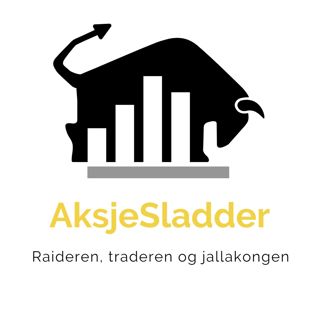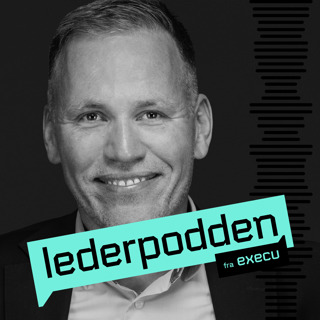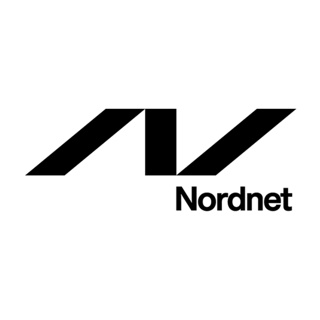
a16z Podcast: Innovation and Regulation -- What Happens When Policy Lags Behind Technology?
Regulation always lags behind technology, but by 80-plus years?! U.S. Representatives Fred Upton and Greg Walden -- of the Energy and Commerce Committee including the subcommittee on Communications and Technology that oversees almost every technology -- join this segment of the a16z podcast to discuss what government can do to help (or hurt) innovation. We discuss the Telecommunications Act, originally passed in 1934 and revised in 1996 (before the internet, computing, and especially mobile became ubiquitous!); the conversion from analog to digital; what constitutes medical devices (is an iPad a medical device?) -- as well as healthcare and the 21st Century Cures Act, with its implications for patients, healthcare professionals, and researchers looking for the next breakthrough in medicine.
22 Jul 201517min

a16z Podcast: It's Not What You Say, It's How You Say It -- When Language Meets Big Data
When most people think of big data they think of numbers, but it turns out that a lot of big data -- a lot of the output of our work and activity as humans in fact -- is in the form of words. So what can we learn when we apply machine learning and natural language processing techniques to text? The findings may surprise you. For example, did you know that you can predict whether a Kickstarter project will be funded or not based on textual elements alone ... before it's even published? Other findings are not so surprising; e.g., hopefully we all know by now that a word like "synergy" can sink a job description! But what words DO appeal in tech job descriptions when you're trying to draw the most qualified, diverse candidates? And speaking of diversity: What's up with those findings about differences in how men and women describe themselves on their resumes -- or are described by others in their performance reviews? On this episode of the a16z Podcast, Textio co-founder and CEO Kieran Snyder (who has a PhD in linguistics and formerly led product and design in roles at Microsoft and Amazon) shares her findings, answers to some of these questions, and other insights based on several studies they've conducted on language, technology, and document bias.
16 Jul 201534min

a16z Podcast: Bitcoin's Growing Pains -- and Possibilities
Bitcoin has had more than its share of drama. There is, of course, the mystery surrounding its anonymous founder (or perhaps, founders) Satoshi Nakamoto. More recently, there's been a battle over whether the size of blocks need to grow to account for more capacity -- especially since there isn’t much time left to make changes before blockchain capacity runs out, says core bitcoin developer Mike Hearn. Hearn joins a16z’s Chris Dixon on this segment of the a16z Podcast to discuss the current state of bitcoin development; Hearn’s own Lighthouse creation, which is a bitcoin-based crowdfunding app; and what it will take to move the bitcoin protocol into the mainstream. The views expressed here are those of the individual AH Capital Management, L.L.C. (“a16z”) personnel quoted and are not the views of a16z or its affiliates. Certain information contained in here has been obtained from third-party sources, including from portfolio companies of funds managed by a16z. While taken from sources believed to be reliable, a16z has not independently verified such information and makes no representations about the enduring accuracy of the information or its appropriateness for a given situation. This content is provided for informational purposes only, and should not be relied upon as legal, business, investment, or tax advice. You should consult your own advisers as to those matters. References to any securities or digital assets are for illustrative purposes only, and do not constitute an investment recommendation or offer to provide investment advisory services. Furthermore, this content is not directed at nor intended for use by any investors or prospective investors, and may not under any circumstances be relied upon when making a decision to invest in any fund managed by a16z. (An offering to invest in an a16z fund will be made only by the private placement memorandum, subscription agreement, and other relevant documentation of any such fund and should be read in their entirety.) Any investments or portfolio companies mentioned, referred to, or described are not representative of all investments in vehicles managed by a16z, and there can be no assurance that the investments will be profitable or that other investments made in the future will have similar characteristics or results. A list of investments made by funds managed by Andreessen Horowitz (excluding investments and certain publicly traded cryptocurrencies/ digital assets for which the issuer has not provided permission for a16z to disclose publicly) is available at https://a16z.com/investments/. Charts and graphs provided within are for informational purposes solely and should not be relied upon when making any investment decision. Past performance is not indicative of future results. The content speaks only as of the date indicated. Any projections, estimates, forecasts, targets, prospects, and/or opinions expressed in these materials are subject to change without notice and may differ or be contrary to opinions expressed by others. Please see https://a16z.com/disclosures for additional important information.
10 Jul 201521min

a16z Podcast: The Changing Relationship Between Tech and Government
Just a few years ago if you were mayor of Washington D.C. –- or any other city -- you didn’t have to wrap your head around the likes of Airbnb, Lyft, and other companies in the fast-growing 'sharing economy'. They didn’t exist. Now, you have no choice says Washington D.C.’s current Mayor Muriel Bowser ... because the citizens in your city certainly already have. Bowser joins the a16z Podcast, along with former D.C. Mayor Adrian Fenty (who is currently a special advisor to a16z), to discuss how technologies and tech companies are changing cities and government, and how moving forward government may play a bigger role. That, and the case for more transparency in government, on this segment of the pod.
10 Jul 201517min

a16z Podcast: Latinos and the Tech Economy -- U.S. Reps. Sanchez and Gallego Talk Bridging the Gaps
There is a gap between the technology industry and the fastest growing portion of today’s workforce and the workforce of the future: Latinos -- argue U.S. Representatives Loretta Sanchez (California) and Ruben Gallego (Arizona), both members of Congress. How can we bring more Latinos -- and other underrepresented populations -- into the tech industry, and what roles do both government and fast-moving tech companies have to play? Especially if tech entrepreneurs and government have a hard time working together? “We have the innovators...[but] how do you move that Latino innovator into the mainstream?” asks Sanchez in this episode of the a16z Podcast.
9 Jul 201524min

a16z Podcast: Is Entrepreneurship a Universal Language?
In this special international edition of the a16z Podcast, Mohsen Malayeri, co-founder of Avatech -- one of the more prominent startup accelerators in Iran among many (much like Y Combinator in the U.S.) -- talks to guest interviewer Christopher Schroeder (former entrepreneur, D.C. investor, and author of Startup Rising) about startups in Iran. What happens when you have a "mobile-first" startup ecosystem? Is this about trying to be yet another Silicon Valley (and if so, are we just substituting a form of technocracy for theocracy)? Silicon Valley isn't a religion, observes Malayeri, but entrepreneurship IS "a common language which has no border". This is the third installment in a special series on tech startups in Iran, part of a larger theme around global tech and how software -- including mobile -- is eating the world … and creating new opportunities within it.
1 Jul 201542min

a16z Podcast: Layering Tech and Culture in Iran
In this special international edition of the a16z Podcast, Nazanin Daneshvar, co-founder and CEO of Takhfifan, the "Groupon of Iran", shares her experiences and broader observations about the startup ecosystem and tech infrastructure in Iran with guest interviewer Christopher Schroeder (former entrepreneur, D.C. investor, and author of Startup Rising). How did she do it? (Hint: With a bit of subterfuge and clever cloaking.)What are the attitudes toward failure in a time and place where startups aren't really considered a real thing? This is the second installment in a special series on tech startups in Iran, part of a larger theme around global tech and how software -- including mobile -- is eating the world … and creating new opportunities within it.
30 Jun 201519min

a16z Podcast: A Conversation With the Inventor of Spark
One of the most active and fastest growing open source big data cluster computing projects is Apache Spark, which was originally developed at U.C. Berkeley's AMPLab and is now used by internet giants and other companies around the world. Including, as announced most recently, IBM. In this Q&A with Spark inventor Matei Zaharia -- also the CTO and co-founder of Databricks (and a professor at MIT) -- on the heels of the recent Spark Summit, we cover the difference between Hadoop MapReduce and Spark; what are the ingredients of a successful open source project; and the story of how Spark almost helped a friend win a million dollars.
24 Jun 201519min






















